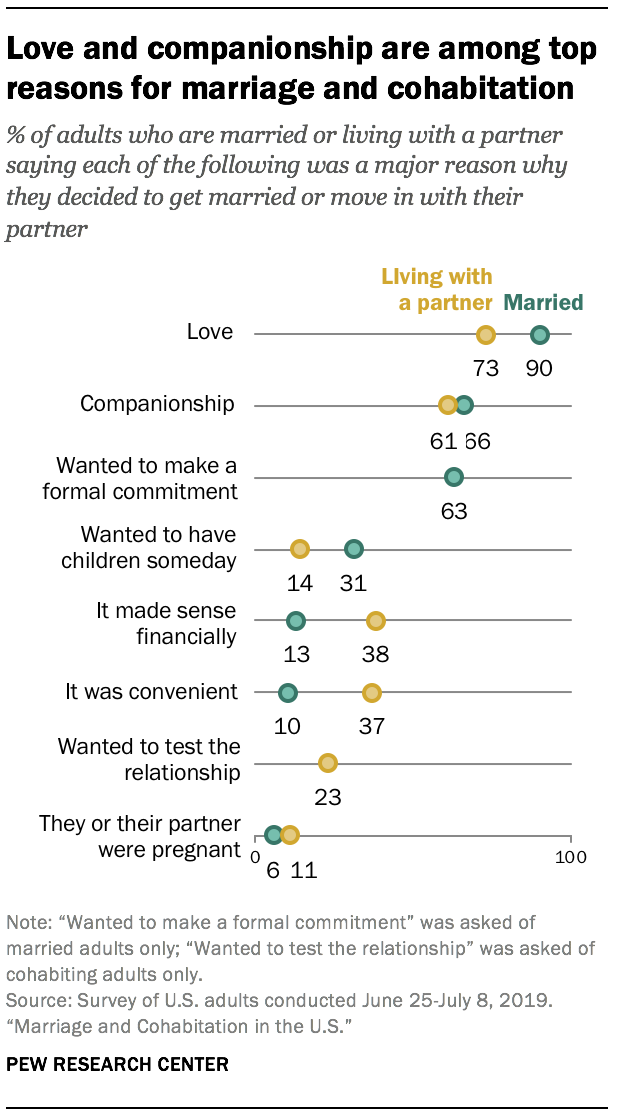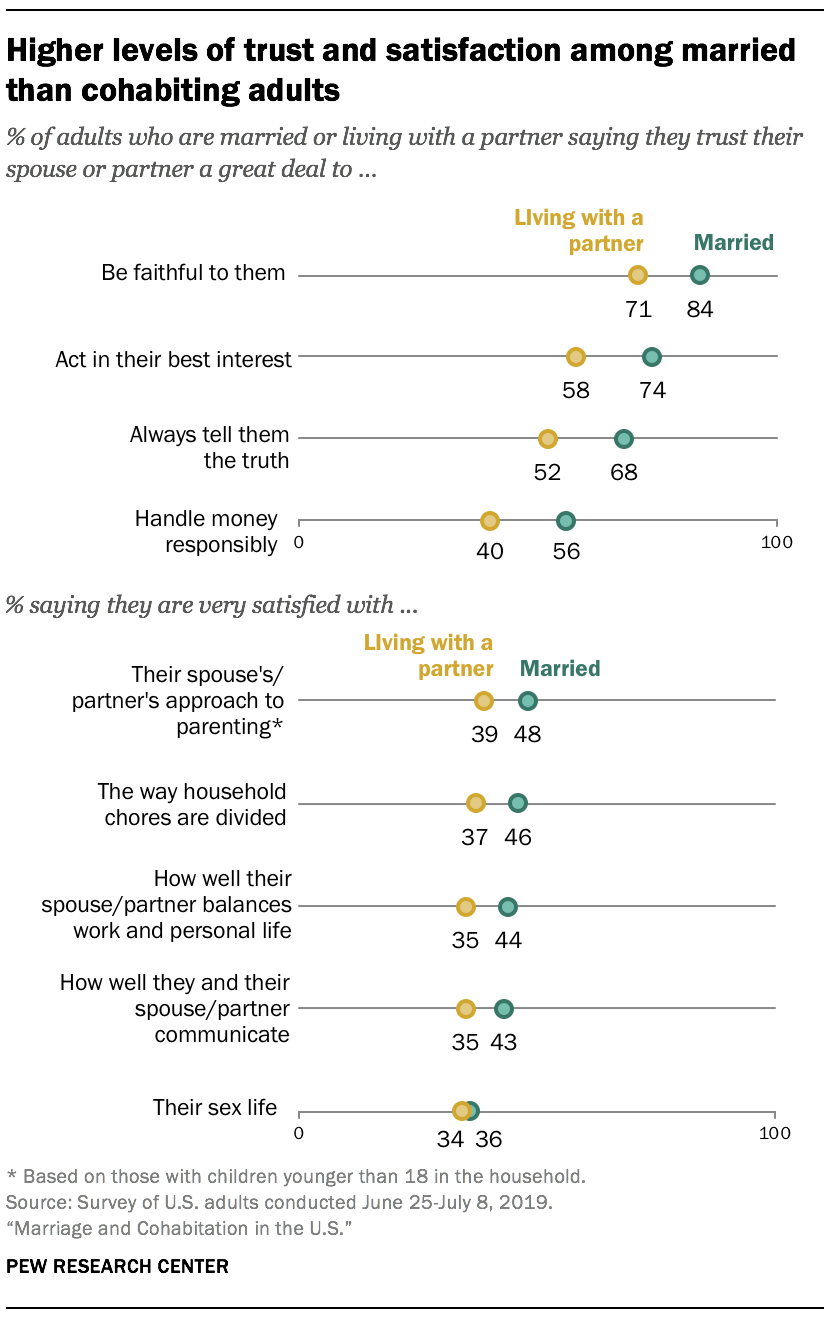The nationally representative survey of 9,834 U.S. adults was conducted online June 25-July 8, 2019, using Pew Research Center’s American Trends Panel.2 The survey includes 5,579 married adults and 880 adults who are living with an unmarried partner. It includes married and cohabiting adults in same-sex relationships. 3 Among the other key findings:
Married adults have higher levels of relationship satisfaction and trust than those living with an unmarried partner
Majorities of married and cohabiting adults express at least a fair amount of trust in their spouse or partner to be faithful to them, act in their best interest, always tell them the truth and handle money responsibly, but by double digits, married adults are more likely than those who are cohabiting to express a great deal of trust in their spouse or partner in each of these areas.
Married adults also express higher levels of satisfaction with their relationship. About six-in-ten married adults (58%) say things are going very well in their marriage; 41% of cohabiters say the same about their relationship with their partner.
When asked about specific aspects of their relationship, larger shares of married than cohabiting adults say they are very satisfied with the way household chores are divided between them and their spouse or partner, how well their spouse or partner balances work and personal life, how well they and their spouse or partner communicate, and their spouse’s or partner’s approach to parenting (among those with children younger than 18 in the household). When it comes to their sex life, however, similar shares of married and cohabiting adults say they are very satisfied.
Married adults are also more likely than cohabiters to say they feel closer to their spouse or partner than to any other adult. About eight-in-ten married adults (78%) say they feel closer to their spouse than to any other adult in their life; a narrower majority of cohabiters (55%) say the same about their partner.
Even after controlling for demographic differences between married and cohabiting adults (such as gender, age, race, religion and educational attainment), married adults express higher levels of satisfaction, trust and closeness than those who are living with a partner.
The reasons why people get married and the reasons they move in with a partner differ in some key ways
 Most married and cohabiting adults cite love and companionship as major reasons why they decided to get married or move in with a partner. But about four-in-ten cohabiters also say finances and convenience were important factors in their decision: 38% say moving in with their partner made sense financially and 37% say it was convenient. In comparison, just 13% of married adults cite finances and 10% cite convenience as major reasons why they decided to get married.
Most married and cohabiting adults cite love and companionship as major reasons why they decided to get married or move in with a partner. But about four-in-ten cohabiters also say finances and convenience were important factors in their decision: 38% say moving in with their partner made sense financially and 37% say it was convenient. In comparison, just 13% of married adults cite finances and 10% cite convenience as major reasons why they decided to get married.
More Articles
- Berkeley Talks: Jessica Morse On How We Can Live With Fire
- Selective Exposure and Partisan Echo Chambers in Television News Consumption: Innovative Use of Data Yields Unprecedented Insights
- Veterans Health Care: Efforts to Hire Licensed Professional Mental Health Counselors and Marriage and Family Therapists
- Indoor and Vertical Farming May Be Part of the Solution to Rising Demands for Food and Limited Natural Resources
- Department of Justice Issues Annual Report to Congress on its Work to Combat Elder Fraud and Abuse
- Senate Commerce Subcommittee Set ... Protecting Kids Online: Testimony From a Facebook Whistleblower
- Adrienne G. Cannon Writes: Those Lonely Days
- What Do You Know About the Problem Solvers Caucus in the House of Representatives? They Unveiled New Bipartisan Solutions to Rebuild America’s Infrastructure, Among Other Concerns
- National Institutes of Health: Study Finds Link Between Red Hair and Pain Threshold
- Jo Freeman: The Georgia Peach Is Purple







